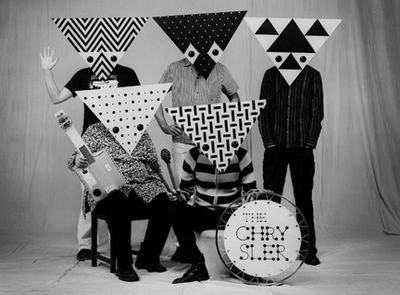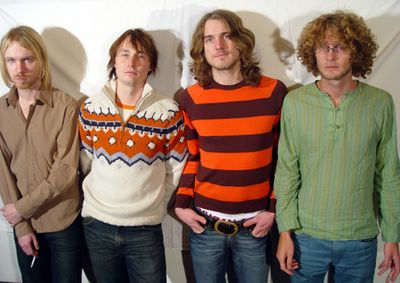
The story of
Tom Rapp's sensational pair of folk albums -- 1967's
One Nation Underground and 1968's
Balaklava -- really begins with Bernard Stollman. Stollman founded ESP-Disk in the early-Sixties out of what he felt was necessity -- there was simply too much good music that would never be recorded and released without his help. In truth, that might have been a stretch of Stollman's imagination, but who can fault the naïve music fanatic? Through his label, such luminaries as avant-garde jazz musicians
Pharaoh Sanders and
Sun Ra, folk-rock radicals
the Fugs and
The Holy Modal Rounders, and proto-punks
The Godz found their way to the confused, startled masses.
Pearls Before Swine -- essentially Tom Rapp and a small ensemble of musicians flavoring his folk songs with banjo, oscillator, clavinette, English horn, and other such decidedly non-rock instruments -- might have been ESP's most accessible artist, which is saying something. Thanks to a reissue by ESP-Disk, you can now hear
The Complete ESP-Disk Recordings of Pearls Before Swine, which amounts to
One Nation Underground and
Balaklava on one CD.
Rapp's songs speak to gentle psychedelia and fierce, vindictive folk-rock in nearly equal measures. A line can certainly be drawn directly from Rapp to
Dylan and other popular folk-rock acts of the time, hence lending Pearls Before Swine at times a more welcoming sound. "Another Time" is reminiscent of the somber folk of
Nick Drake; "Playmate" is ripped right out of Dylan's songbook; "There Was A Man" is a classic folk song in the
Joan Baez mold; and "Suzanne" is a subtle reinvention of the
Leonard Cohen song. But Rapp was far more "out to sea" than Dylan and his more commercially viable brethren ever hoped to be. The fact that Rapp's music has fallen on mostly deaf ears over the decades is not a testament to its quality; rather, Rapp's vision for his art was a complex one that included far more raw, reactionary emotion -- and often times sophistication -- than, say,
Blonde on Blonde. Not to mention acid-induced fuck-with-the-brain calamity.
See the five-minute long "I Shall Not Care," whose song credit includes early-Twentieth Century sentimental poet Sarah Teasdale and "Roman/Tombs." The song begins as a harmless
Simon & Garfunkel-esque acoustic folk tune. But listen to the lyrics, a lift from Teasdale: "When I am dead and over me bright April shakes out her rain-drenched hair, though you should lean above me broken-hearted, I shall not care." Try squeezing that onto an AM radio dial in 1967. The song then abruptly cuts to a second segment as if someone had bumped the needle on the turntable. Scatterbrain electric blues with howling organ screech for 30 seconds as Rapp channels a long-lost jam session from
The Band. That gives way to the song's core: a droning, percussive, middle eastern rant, which steers the listener as off-course as possible. A minute-and-a-half later, The Band kicks back in before fading back into the song's opening statement for the final minute.
Sure, Rapp may be boldly esoteric and downright psychedelic at times, but that doesn't mean that he's a flakey freak folker whose music comes across as simple curiosity in the year 2005. Rather, he's quite poignant and relevant -- even still. Take with you this lyric from the fiery anti-government jam "Uncle John": "You stand up on the platform with the flag wrapped all around you. You tell us that the Bible says to fight for it -- we're bound to. But the red's for the blood we lose. The white's for the gauze they use to cover burned-out blackened men. The rest is for the bodies numb and blue." Hard to argue with that, regardless of date.
The following are hardly Rapp at his most accessible, but they're interesting songs nonetheless.
Pearls Before Swine - "Uncle John"Pearls Before Swine - "I Shall Not Care"For more info on Tom Rapp and Pearls Before Swine, see
this or
this or even
this.








